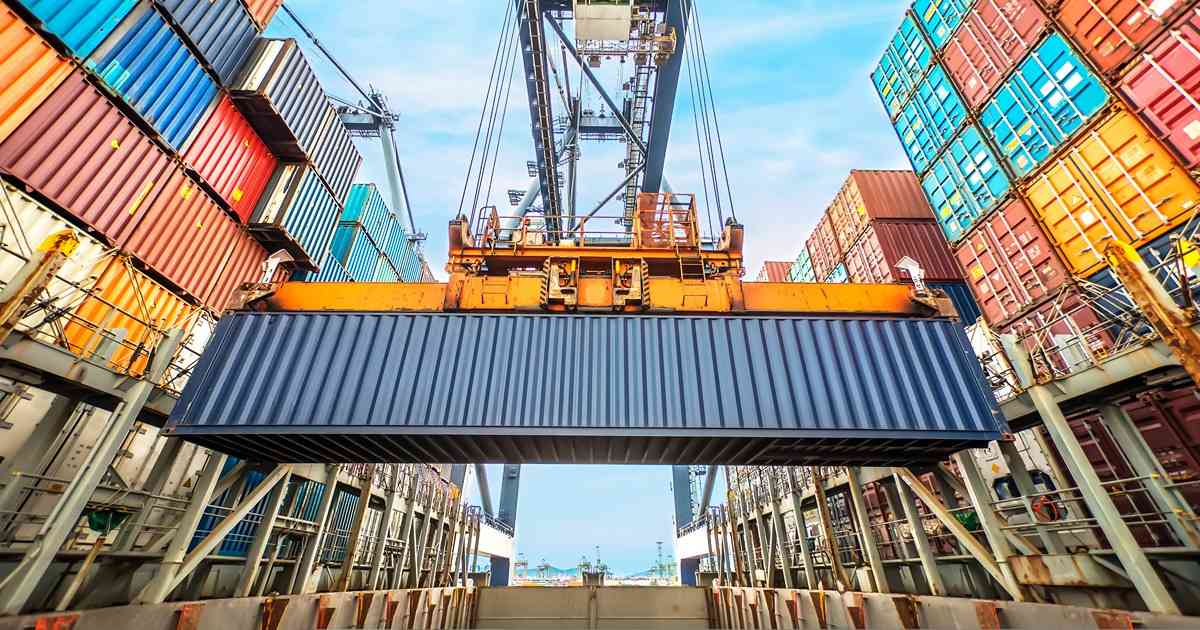
Supply Chain
Article | May 26, 2023
Leveraging technology and resources within a network is key to supply chain optimization. While supply chains are inherently complex, this complexity can lead to significant technological benefits.
Contents
1 Overview and Importance of Emerging Technologies in Optimizing Supply Chain
2 Advantages of Incorporating Emerging Technologies in Enhancing Optimization
2.1 Autonomous Delivery
2.2 Cognitive Automation
2.3 Blockchain-enabled Traceability
2.4 Predictive Maintenance
3 Key Challenges in Adopting Emerging Technologies
3.1 Cost and Budget Constraints
3.2 Skills Gap in Talent
3.3 Privacy and Data Security Concerns
4 Overcoming Challenges
4.1 Adopting Technologies for Managing Budget and Cost
4.2 Developing Talent Pipeline
4.3 Implementing a Zero Trust Security Model
5 Future Outlook
Supply chain optimization involves maximizing the utilization of technology and resources within a supply network. Although supply chains are inherently complex, this complexity can yield significant technological advantages, particularly when leveraging the combination of blockchain, artificial intelligence (AI), and Internet of Things (IoT) technologies.
1 Overview and Importance of Emerging Technologies in Optimizing Supply Chain
Emerging technologies have transformed the supply chain industry and revolutionized business operations. AI, IoT, blockchain, and robotics are getting prominence with the ability to streamline supply chain processes, reduce costs, increase efficiency, and ultimately boost customer satisfaction. Implementing these technologies can give businesses real-time supply chain visibility, reducing waste and enhancing inventory management. Understanding the potential benefits of these emerging digital supply chain technologies and how they can be implemented within the supply chain is essential for any business that intends to stay in a competitive and rapidly evolving market.
2 Advantages of Incorporating Emerging Technologies in Enhancing Optimization
Blending operations with emerging supply chain technologies can significantly improve the speed and accuracy of information flow, minimize manual intervention, and reduce lead times. Additionally, these technologies can provide enhanced visibility into supply chain operations, enable effective risk management, and facilitate proactive decision-making.
2.1 Autonomous Delivery
Incorporating autonomous delivery that comes with self-driving vehicles benefits businesses beyond faster delivery times, lowers costs and reduces human error. It offers increased safety, greater flexibility, and improved resource management. It benefits industries like e-commerce and logistics, where quick and efficient delivery is crucial.
2.2 Cognitive Automation
Businesses face significant challenges due to unpredictable fluctuations in supply and demand, which can strain their existing technology. To mitigate these risks, executives have increased their investments in risk management. Cognitive automation offers three key benefits in supply chain management: identifying challenges and opportunities, gathering demand signals, and utilizing data for decision-making. Cognitive automation makes balancing supply and demands more efficient and effective, allowing businesses to act faster.
2.3 Blockchain-enabled Traceability
Blockchain technology, a distributed ledger system, enables secure, transparent, and traceable record-keeping across a supply chain network. By providing a tamper-proof record of product movement and quality, blockchain technology can enable businesses to verify the authenticity and integrity of their products at each stage of the supply chain. In addition, blockchain technology allows businesses to quickly trace product origins and identify affected batches during recalls.
2.4 Predictive Maintenance
Predictive maintenance is a technology that uses machine learning algorithms and Internet of Things sensors to predict impending equipment failures. By analyzing equipment performance data, predictive analytics enables businesses to reduce equipment downtime, lower maintenance costs, and increase reliability. With predictive maintenance, businesses can transition from reactive to proactive maintenance, preventing equipment failures and extending equipment lifecycles.
3 3 Key Challenges in Adopting Emerging Technologies
3.1 Cost and Budget Constraints
The executives in the supply chain industry face a significant challenge when adopting emerging supply chain technologies due to the associated costs and budget constraints. While these smart supply chain technologies offer long-term benefits, the upfront investment can deter businesses. Businesses need to consider the total cost of ownership, including implementation, training, ongoing maintenance costs, and the potential return on investment.
3.2 Skills Gap in Talent
Incorporating emerging technologies and trends in supply chain operations management is a complex and costly investment that demands a highly skilled workforce to implement and operate such supply chain technologies successfully. A significant skills gap while adopting technology in the supply chain industry poses a challenge for businesses in finding and training competent personnel with technical, analytical, and business skills required to handle emerging technologies.
3.3 Privacy and Data Security Concerns
As supply chain operations adopt cutting-edge technologies, companies must address privacy and data security issues. The use of technology requires the collection and dissemination of sensitive data across multiple parties, which raises security and privacy concerns that can be exploited by cybercriminals or unauthorized personnel. Failure to adequately address these issues may result in reputational harm, legal and financial penalties, and a loss of customer confidence.
4 Overcoming the Challenges
4.1 Adopting Technologies for Managing Budget and Cost
To overcome the challenge of budget and cost constraints in adopting technology in the supply chain, businesses can leverage innovative tools, such as cost management software and advanced analytics tools, which can provide real-time visibility into cost drivers and enable better decision-making to optimize resource utilization. With the top three technologies in supply chain such as AI, IoT and blockchain, businesses can reduce costs, boost supply chain performance, and maintain market competitiveness. AI predicts demand, maximizes inventory and improves transportation; RPA automates manual tasks, reduces labor costs, and cloud computing provides a flexible and scalable IT infrastructure with reduced upfront investments.
4.2 Developing Talent Pipeline
Businesses must invest in building a talent pipeline to ensure a steady supply of skilled employees to narrow the skills gap in the supply chain industry. Collaboration with educational institutions, in-house training programs, and managed service providers from the technology industry can all be part of the answer. The organization's competitiveness and success can be increased by creating a talent pipeline to fill the skills gap between the current workforce and the needs of emerging technologies. Businesses can keep their workforce current and ready to adopt new technologies in supply chain by investing in a talent pipeline.
4.3 Implementing a Zero Trust Security Model
As businesses adopt emerging technologies for supply chain operations, privacy, and data security, concerns have become a formidable obstacle. The implementation of a zero-trust security model can aid in addressing this difficulty. Before gaining access to any data or system, all users and devices in this model must be authenticated as potential threats, per this model. This strategy protects data and systems from unauthorized access and enables businesses to comply with regulations such as the GDPR and CCPA. In addition, it can provide supply chain visibility and control over data access in real-time, making it more effortless to detect and respond to security threats.
5 Future Outlook
Supply chain leaders view emerging supply chain technology as a competitive advantage and as a means to address digital transformation. In addition, there is a focus on supply chain technologies that improve human decision-making and manage assets at the edge. Organizations should unify their technology portfolio and update legacy systems for greater efficiency. As supply chain complexity increases, we can expect even more advanced technology solutions leveraging big data, machine learning, and robotics to create agile, flexible, and sustainable supply chains.
Read More

Warehousing and Distribution
Article | July 17, 2023
The pandemic has had a significant impact on the logistics and shipping sectors, forcing businesses to rethink their supply chain tactics. Fresh COVID- Supply systems around the world are already under threat from 19 outbreaks. China's measures to stop the spread of Omicron by shutting down shipping terminals caused a lockjam of cargo ships. A similar scenario was seen in US and European ports that were congested as a result of a significant increase in cargo.
Additionally, these difficulties have been made worse by the tremendous staff shortage in the US. Although there are more job openings than before, the total strength of the workforce has taken a hit. A report by WNS and Corinium Intelligence reveals that over 60% of shipping and logistics organizations have amped up the automation aspect of their operations by two years. So, what does that mean for the future? In this article, we will talk about the four most promising trends that will define the shipping and logistics industry in 2025.
Live Monitoring Powered by Big Data and the Digital Twin Technologies
Big data is simplifying the ability to be agile, efficient, and cost-effective, and connectivity with other technologies and elements of the infrastructure is driving a real-time view of the supply chain further. Other innovations such as drones and self-driving trucks will contribute to this real-time update and processing of massive amounts of data. In addition, tracking software for freight will provide even greater visibility to customers and enterprises.
Automated Planning Through Collaboration Between Humans and Machines
Artificial intelligence (AI)AI in shipping and logistics has grown exponentially in areas of planning. AI applications are used to alter transportation and route planning. According to Gartner, by 2030, AI augmentation, will surpass other forms of AI application and account for 44% of all AI-powered value. Predictive alerting is a prominent example of augmented intelligence. Smart alerts based on predictive analytics can be used by logistics professionals to carry out a variety of crucial tasks, such as estimating truck arrival times, anticipating equipment maintenance and product damage, and organizing for a spike in demand.
Hyper-local Supply Chains
Enterprise will downsize and bring their supply chains onshore over the course of the next few years, ushering in the next generation of hyper-local logistics. The two forces driving this transition are the need to stay agile and resilient to counter disruption and meet challenging customer demands for same-day delivery. The global same-day delivery market is estimated to reach a value of USD 20.36 billion by the year 2027. This will cultivate a hyper-local service to meet the growing demand.
Sustainability
An emphasis on sustainability will be the highlight of the shipping and logistics industry. Enhanced connectivity will enable enterprises to optimize their human as well as robotic resources.
Future Forward
The shipping and logistics industry has been forced to accelerate their digital adoption and increase their resilience due to the uncertainty in the past couple of years. Establishing real-time visibility, leveraging human-machine collaboration, adopting hyper-local logistics, and improving sustainability are all ways that businesses are preparing for the future.
Read More

Warehousing and Distribution
Article | July 11, 2023
Oracle, a leading provider of computer technology, published a paper analyzing how supply chain managers should use change as a catalyst in "inspiring and engaging employees." In the report, Oracle highlights how organizations across the world are going through radical shifts in the way they operate.
Customers need quick, convenient, and customized solutions today. Employees also have higher expectations, looking for companies that are a match for their values, provide flexible working arrangements, and offer cutting-edge tools. Shareholders and investors also want more, which forces businesses to focus on making money in ways that are sustainable and diverse.
See Change as an Opportunity
The companies that are most successful, according to Oracle, are those who see change as just another opportunity to reinvent, and the company lists four ways supply chain leaders might find such an opportunity:
Boost employee engagement
Aim for sustainability and responsibility in management
Be quick to respond to disruptions in the supply chain
Exceed consumer expectations
In the paper, Oracle reports that instead of adapting to the change, organizations must be able to stay on top of challenges and prepare well in advance.
Align with an Employee-Centred Culture
Leaders must be able to attract well-matched talent, with the skills to not just fulfil job roles but also drive innovation. Today, people value a work-life balance where they have time to pursue their non-work interests, spend time with their families, and create a diverse, and inclusive world. According to Oracle, this is a significant consideration, and organizations that meet the demands of this new workforce will have a competitive edge in hiring the top talent.
Looking Forward
The Great Resignation has been a hot topic in HR, but the truth is it affects all aspects of business, and importantly, the supply chain, and in the end, the ability to provide smooth customer experiences. HR, customer experience, and supply chain leaders must synergize to become an employer destination to reckon with in order to succeed.
Read More

Article | April 20, 2020
The complex, hyper-connected nature of global supply chains makes them extremely vulnerable to a range of risk factors. In 2019, corporations experienced new levels of volatility in commodity and energy pricing, interest and exchange rates, and general international trading conditions. In 2020, things are likely to remain rocky. Research shows that many businesses, despite being forewarned about these risks, are still tending to be reactive rather than proactive in their approach.
Read More